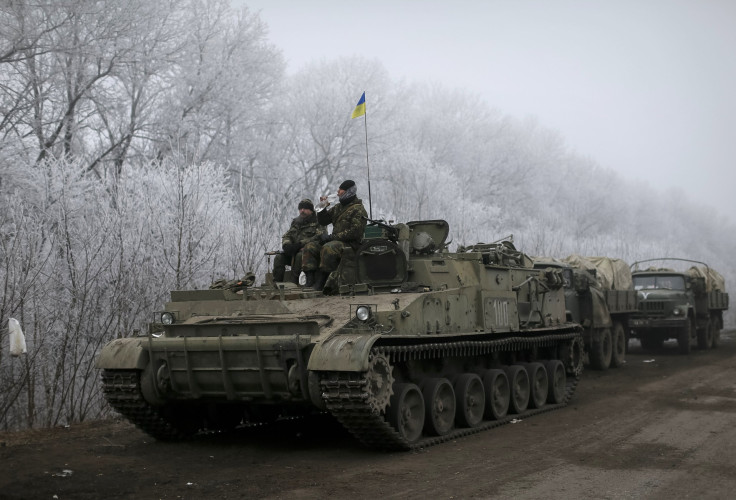Ukraine Crisis: EU Expands Sanctions List; Russian Singer, Deputy Ministers Among 19 People Facing Ban

The European Union published a list Monday of 19 people and nine organizations targeted with sanctions for their involvement in the conflict in eastern Ukraine. The new list includes Iosif Kobzon, a prominent Russian singer and lawmaker, and two Russian deputy defense ministers.
Although the EU foreign ministers had reportedly decided last week to impose new sanctions as a result of increasing violence in eastern Ukraine in late January, the names included in the new list were only announced on Monday as the sanctions, imposing an asset freeze and travel ban, took effect, The Wall Street Journal reported.
Kobzon, 77, who made a concert trip to Donetsk last autumn to support the pro-Russian rebel leaders there, is said to be “the most eye-catching name” on the list. Kobzon is also a member of the State Duma or the lower house of the Russian parliament, Reuters reported.
Kobzon was listed because “he visited the so-called Donetsk People's Republic and during his visit made statements supporting separatists,” according to the EU's official journal.
“He was also appointed Honorary Consul of the so-called ‘Donetsk People's Republic’ in the Russian Federation,” the EU journal said.
In addition to Kobzon, the EU list also included Russia’s first Deputy Minister for Defense Arkady Bakhin, who is accused of being involved in supporting the deployment of Russian troops in Ukraine.
“According to the present Russian Ministry of Defence structure, in that capacity, he participates in shaping and implementing the policy of the Russian Government. These policies threaten the territorial integrity, sovereignty and independence of Ukraine,” the EU journal said.
Other Russian names on the sanctions list are Anatoly Antonov, Russia’s deputy defense minister and Andrei Kartapolov, deputy chief of the general staff of the Russian armed forces.
Among the organizations targeted on the list were the armed Ukrainian separatist groups such as the Cossack National Guard, the Sparta Battalion and the Death Battalion. The Russian group Public Movement Novorossiya, which is claimed to be headed by Russian officer Igor Strelkov, was also targeted.
Aleksey Pushkov, chairman of State Duma’s Foreign Affairs Committee, criticized the sanctions saying that the EU’s move would further deteriorate the diplomatic efforts to stop the Ukrainian conflict.
The sanctions are “going to be contrary to the results of Minsk [peace agreements]. These sanctions will not solve anything, but will complicate the political dialogue,” RT quoted Pushkov as saying.
Meanwhile, Kiev said Monday that it would not pull back weapons from the frontline as rebels were claimed to have “resumed shelling” and destroyed a police station in the city of Debaltseve earlier that day.
“There is no question at the moment of us withdrawing heavy weapons” from the frontline because of fire from pro-Russian separatists, a Ukrainian military spokesperson told Agence France-Presse.
A European-mediated ceasefire agreement was signed between Ukraine and the separatists in the Belarusian capital Minsk last week, requiring both Kiev and rebels to pull out heavy weapons from the violence-torn eastern region of the country. The ceasefire was scheduled to begin at midnight on Saturday.
© Copyright IBTimes 2024. All rights reserved.






















